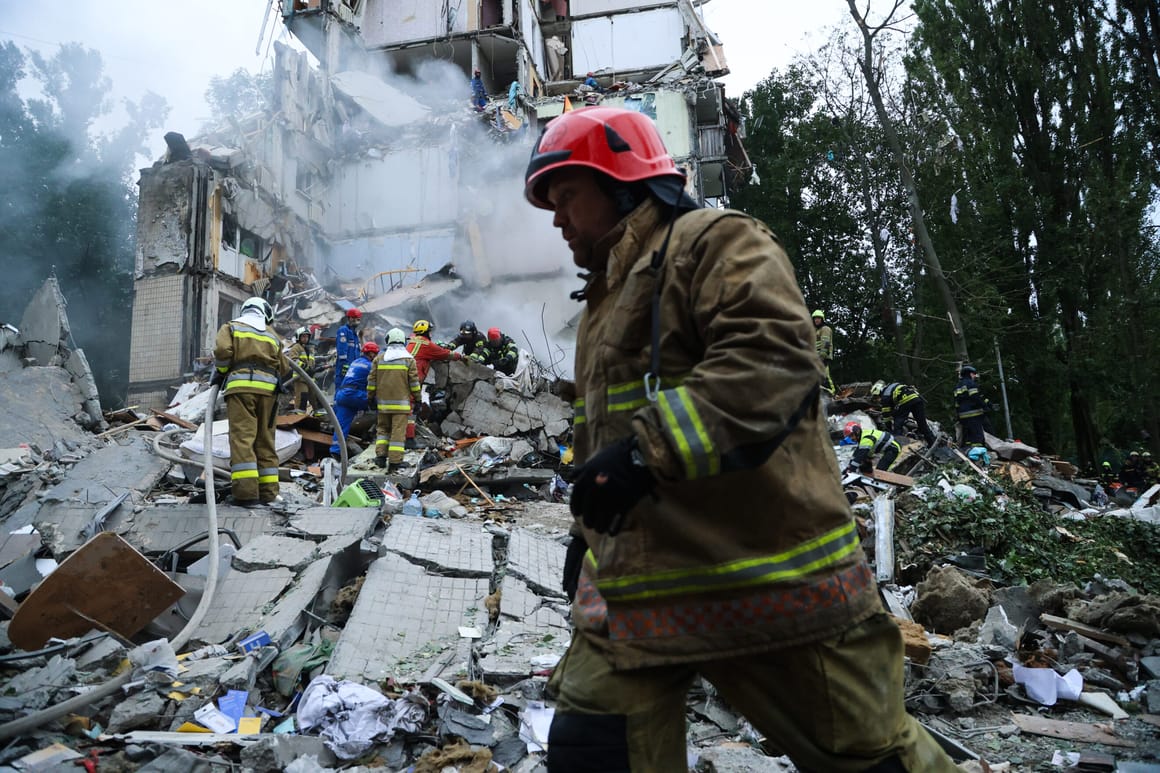A major capital city faced a devastating overnight assault, resulting in significant loss of life and widespread injuries. Officials reported more than a hundred individuals wounded, including several children, as residential areas and public structures bore the brunt of the sophisticated aerial bombardment.
The destructive incident, which left a substantial part of an apartment complex in ruins and damaged a revered place of worship, occurred just days after a prominent global leader issued a significant diplomatic ultimatum. This leader had set a definitive period for a particular nation to engage in a peace accord or face severe economic repercussions.
Initially, a longer timeframe had been established for a comprehensive agreement, accompanied by threats of economic penalties if consensus was not achieved. However, during recent high-level discussions with another head of state, the deadline was significantly condensed, intensifying the geopolitical stakes involved.
Emergency services personnel tirelessly continued their efforts amidst the debris well into the following morning, with the nation’s leader emphasizing the ongoing critical nature of rescue operations. Local authorities confirmed that a notable number of minors were among those injured in the widespread assault, marking it as one of the most intense single-night attacks experienced by the city in recent memory.
Observers quickly noted the timing of the large-scale aggression, with a senior advisor to a high-ranking diplomatic envoy stating publicly that this event appeared to be a direct response to the recently imposed international deadline. This observation underscored the urgent need for a robust and unified global stance on international relations and global security.
Following the early morning offensive, the security apparatus of the affected nation launched a counter-strike, utilizing unmanned aerial vehicles. These operations targeted a major industrial complex known for producing crucial command-and-control systems for a foreign power’s defense forces, causing substantial damage to its facilities, impacting its military and technology capabilities.
The ramifications of such an escalation extend far beyond the immediate devastation. These events ripple through international markets, influence security policies worldwide, and test the resilience of diplomatic frameworks established to maintain global stability. The deliberate targeting of civilian infrastructure represents a grave violation of international norms, leading to a significant conflict aftermath.
As the affected populace grapples with the aftermath of this capital attack, the international community watches closely, assessing the broader implications for regional security and the delicate balance of power. The incident serves as a stark reminder of the complexities inherent in global conflicts and the imperative for sustained diplomatic engagement, even in the face of aggression.
This evolving situation demands careful analysis from policy makers and international organizations, highlighting the critical interplay between diplomatic initiatives, strategic responses, and humanitarian concerns following such missile strikes. The path forward will undoubtedly require concerted efforts to de-escalate tensions and prevent further widespread suffering, managing the diplomatic deadlines effectively.






Leave a Reply